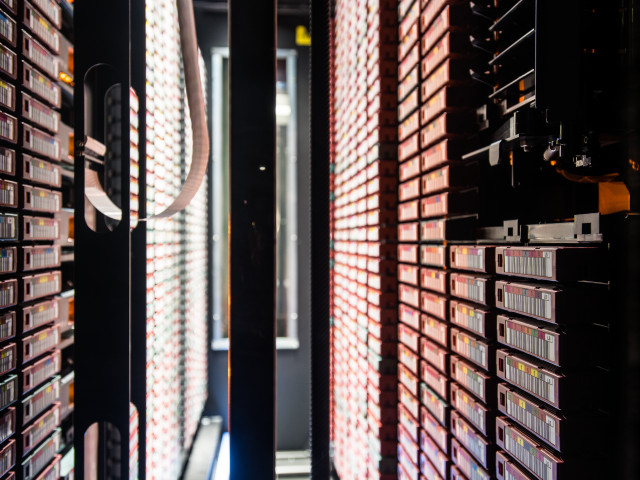Parallel Programming with threads and shared variables Processes and synchronisation
Critical sections, locks, barriers, semaphores and monitors Language overview: threads in Java, Pthreads
Introduction to parallel and distributed programming with processes
Message passing, RPC, RMI and rendezvous
Overview of parallel and distributed programming environments e.g. MPI, PVM and OpenMPPerformance
ID1217 Concurrent Programming 7.5 credits

The course treats the core concepts and techniques for concurrent (process-oriented and multithreaded) programming. This forms the basis for operating systems, reactive and real-time systems, distributed and multi-processor systems. It also provides an overview of principles of distributed and parallel programming. The course is intended to give you knowledge and skills in process-oriented programming.
Information per course offering
Choose semester and course offering to see current information and more about the course, such as course syllabus, study period, and application information.
Information for Spring 2026 Start 13 Jan 2026 programme students
- Course location
KTH Campus
- Duration
- 13 Jan 2026 - 13 Mar 2026
- Periods
Spring 2026: P3 (7.5 hp)
- Pace of study
50%
- Application code
60205
- Form of study
Normal Daytime
- Language of instruction
English
- Course memo
- Course memo is not published
- Number of places
Places are not limited
- Target group
- Open to all programmes as long as it can be included in your programme.
- Planned modular schedule
- [object Object]
- Schedule
- Part of programme
Master's Programme, Embedded Systems, year 2, INMV
Master's Programme, Computer Science, year 2, CSST
Master's Programme, Computer Science, year 1, CSST
Master's Programme, Computer Science, year 2, CSTC
Master's Programme, Computer Science, year 1, CSTC
Master's Programme, Embedded Systems, year 1, INMV
Degree Programme in Computer Engineering, year 2, Mandatory
Degree Programme in Information and Communication Technology, year 3
Degree Programme in Information and Communication Technology, year 2
Degree Programme in Electronics and Computer Engineering, year 3
Bachelor's Programme in Information and Communication Technology, year 2, Mandatory
Contact
Course syllabus as PDF
Please note: all information from the Course syllabus is available on this page in an accessible format.
Course syllabus ID1217 (Spring 2024–)Content and learning outcomes
Course contents
Intended learning outcomes
After passing the course, the student should be able to
- compare and contrast programming models and paradigms for shared memory and distributed memory to choose the most appropriate models and the paradigms for a given problem
- justify, illustrate and explain the need of synchronisation in a concurrently executing programme
- explain, compare, choose and use the different synchronisation mechanisms in a concurrently executing programme
- explain, compare, choose and use different communication mechanisms for process interaction in distributed programmes
- implement concurrently executing and distributed programmes in C, Java or other programming languages by means of various programming environments such as pthreads, openMP, Java threads and monitors, Socket API, MPI and Java RMI
- evaluate, measure and estimate speed, performance and scalability and analyse safety and liveness properties for parallel and distributed programmes
in order to
- acquire knowledge in the basics of concurrent programming, more specifically about programming models, concepts, paradigms, techniques, synchronisation and communication mechanisms
- develop practical skills and experience in programming environments for developing parallel and distributed programmes
Literature and preparations
Specific prerequisites
Knowledge of computer technology/computer architecture including multicore architectures, 6 higher education credits, equivalent to a completed course IS1200/IS1500/EP1200/HE1028.
Knowledge and skills in C-programming, 3 higher education credits, equivalent to a completed course IS1200/IS1500 or DD1388/SF2565/HI1024.
Knowledge and skills in object oriented programming, 6 credits, equivalent to completed course DD1310-DD1319/DD1321/DD1331/DD1337/DD100N/ID1018.
Literature
Examination and completion
Grading scale
Examination
- TEN1 - Examination, 4.5 credits, grading scale: A, B, C, D, E, FX, F
- LABA - Laboratory Work, 3.0 credits, grading scale: P, F
Based on recommendation from KTH’s coordinator for disabilities, the examiner will decide how to adapt an examination for students with documented disability.
The examiner may apply another examination format when re-examining individual students.
If the course is discontinued, students may request to be examined during the following two academic years.
Examination is computer-based and should be made in place at KTH Royal Institute of Technology
Other requirements for final grade
Passed written examination (TEN1; 4.5 higher education credits) and passed programming assignments (LABA; 3.0 higher education credits)
Examiner
Ethical approach
- All members of a group are responsible for the group's work.
- In any assessment, every student shall honestly disclose any help received and sources used.
- In an oral assessment, every student shall be able to present and answer questions about the entire assignment and solution.
Further information
Course room in Canvas
Offered by
Main field of study
Education cycle
Supplementary information
In this course, the EECS code of honor applies, see: http://www.kth.se/en/eecs/utbildning/hederskodex.